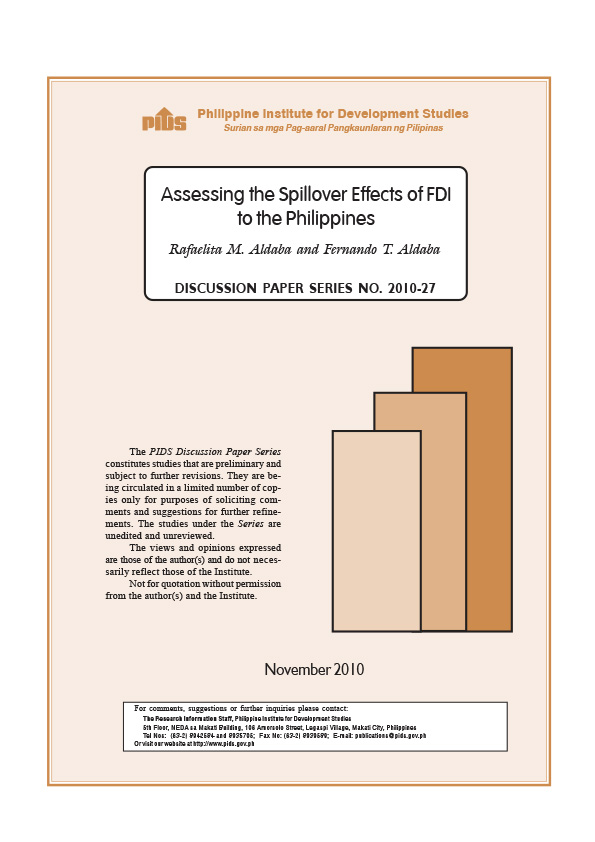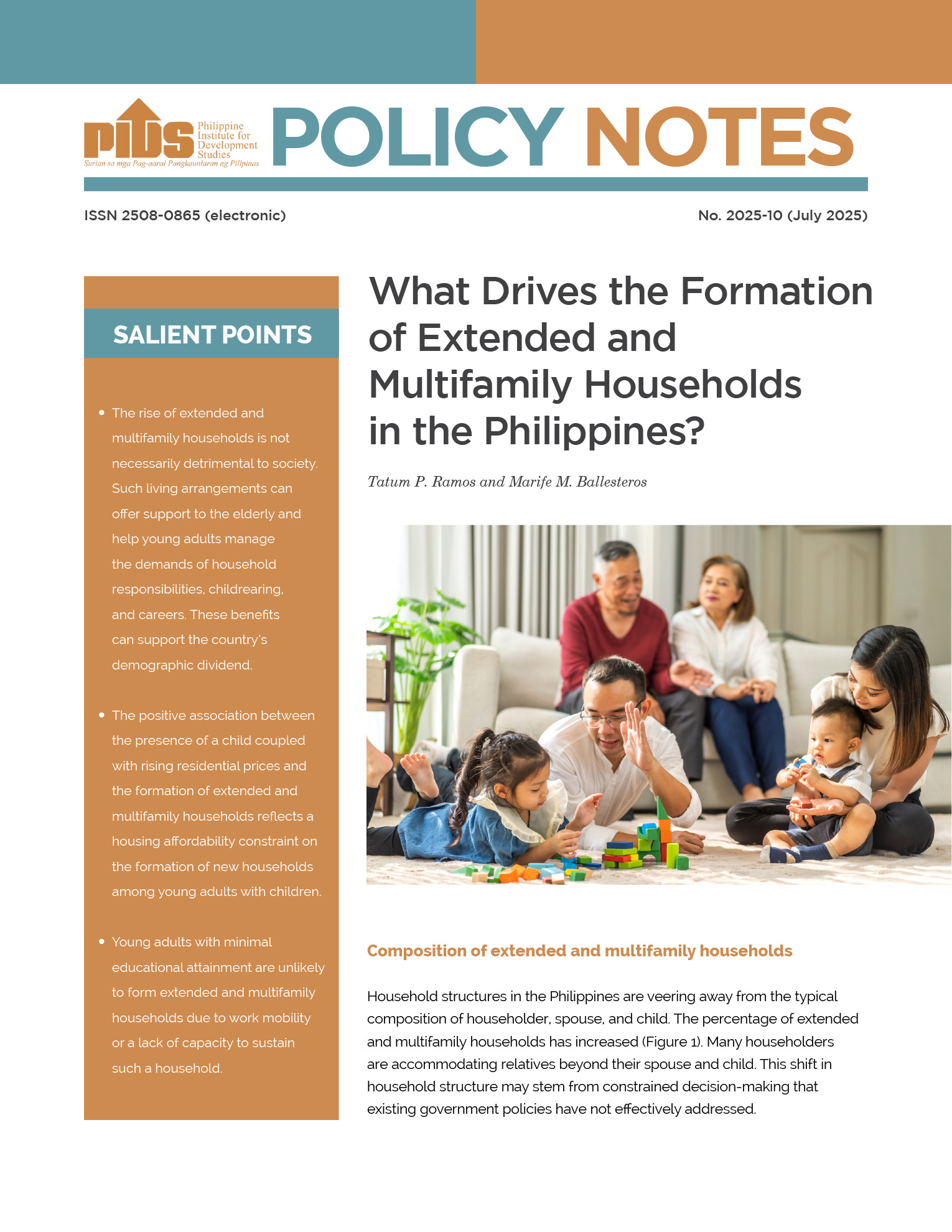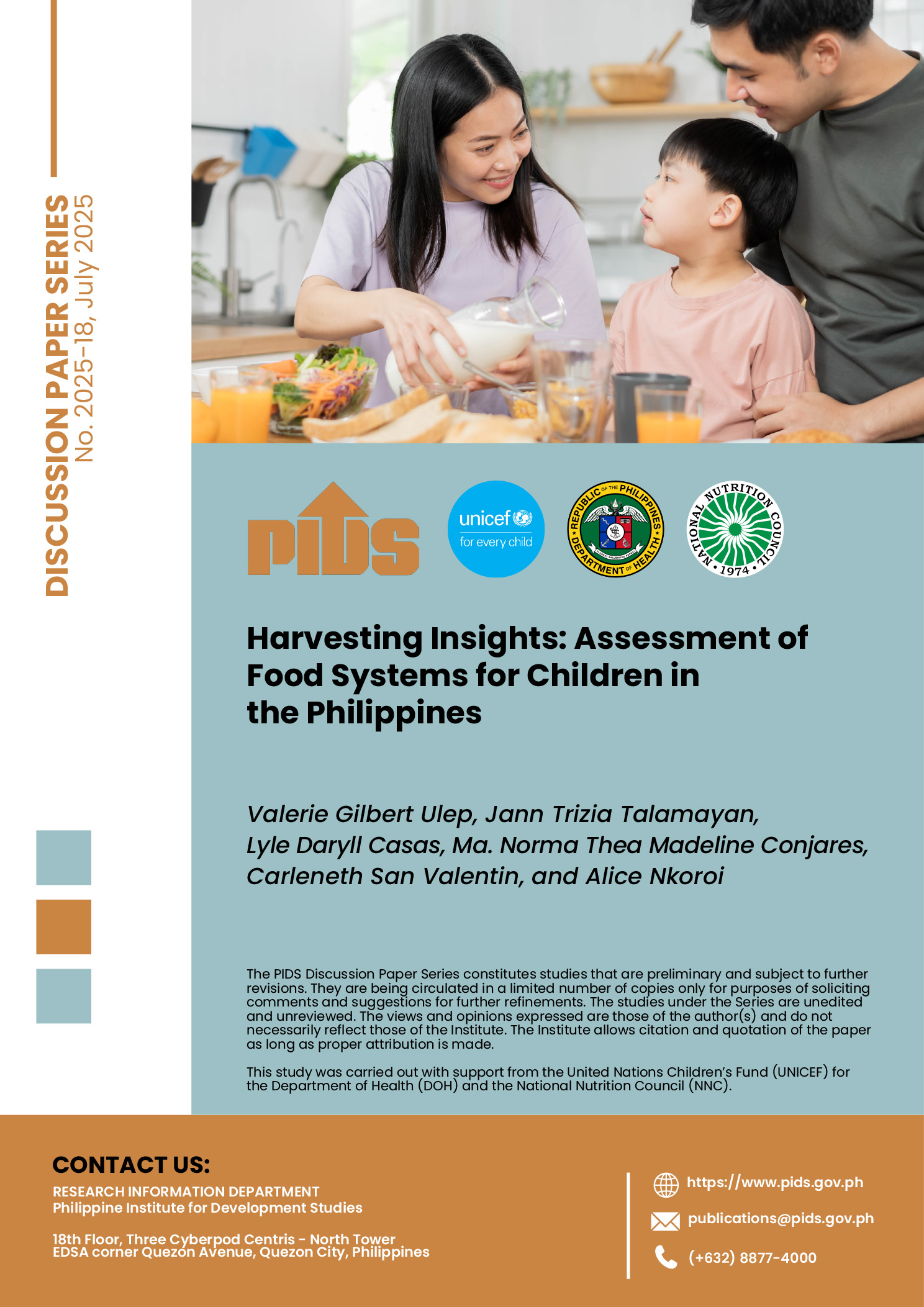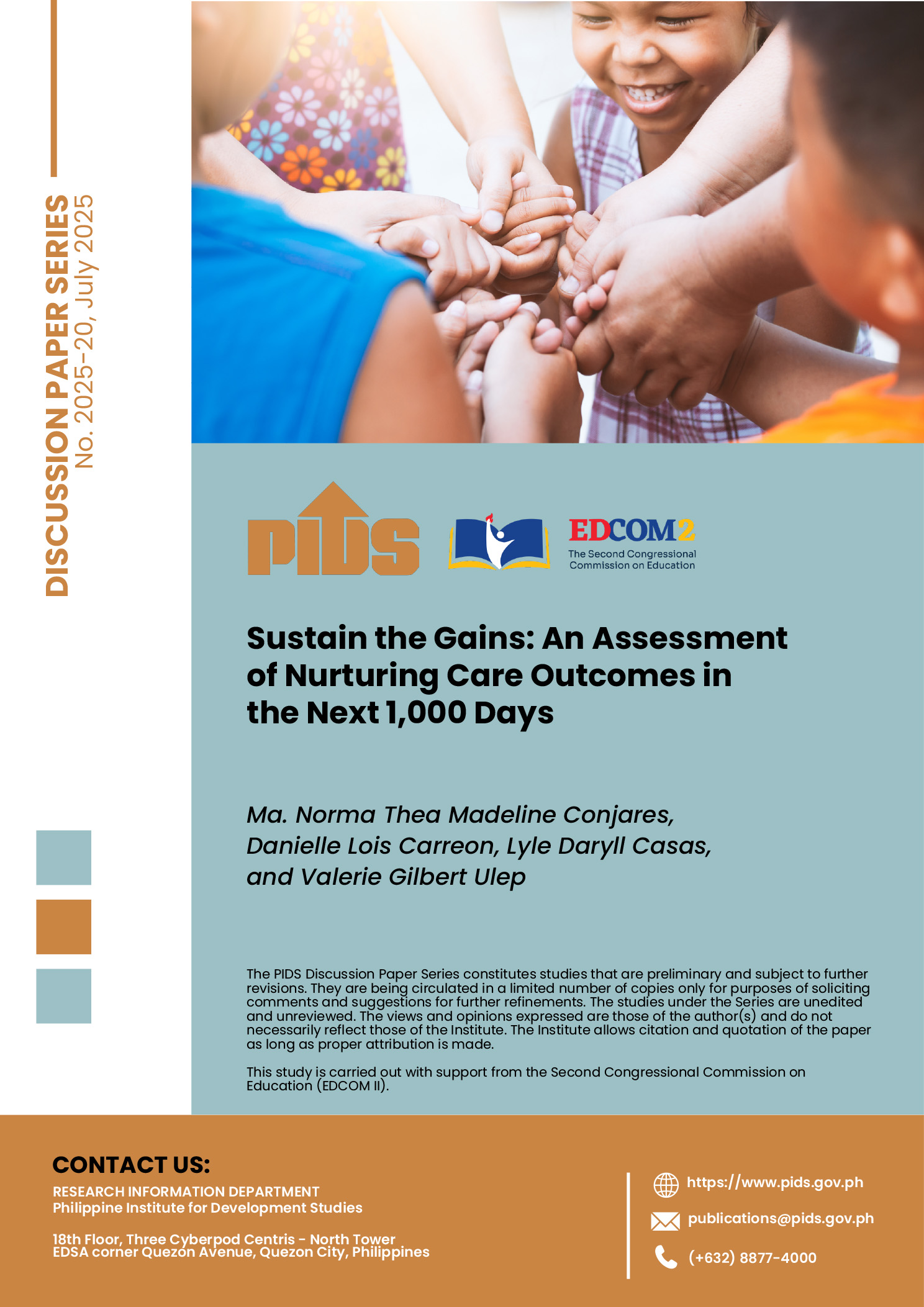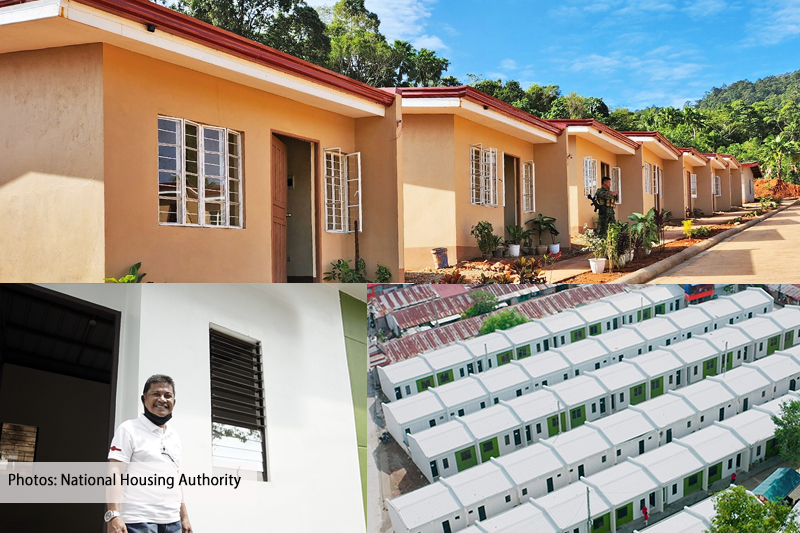The experience of the Philippines shows that FDI spillover effects are not automatically generated. Opening up the economy to FDI has contributed to the country`s exports of high-technology products and overall economic growth. However, the spillover effects of FDI to domestic firms have remained limited due to the domestic firms` weak competitiveness and inability to absorb the technology or knowledge being transferred. The government needs to adopt a more comprehensive approach that would combine industrial policy to improve and develop domestic parts and supplier firms with measures to create an environment conducive to the creation and expansion of FDI-related spillovers as well as increase participation in higher segments of industry value chain.
Citations
This publication has been cited 8 times
- Gamage, Naradda et.al. 2019. Global challenges and survival strategies of the SMEs in the era of economic globalization: A systematic review. MPRA Paper 98419. University Library of Munich, Germany. .
- Gamage, Sisira Kumara Naradda . 2020. A review of global challenges and survival strategies of Small and Medium Enterprises (SMEs). Economies, 8, no. 4,1-24. MDPI.
- Lee, Cassey and Dionisius Narjoko. 2015. Escaping the middle-income trap in Southeast Asia: Micro evidence on innovation, productivity, and globalization. Asian Economic Policy Review, 10, no. 1, 124-147. Japan Center for Economic Research.
- Lee, Cassey and Dionisius Narjoko. 2015. Escaping the middle-income trap in Southeast Asia: Micro evidence on innovation, productivity, and globalization. Asian Economic Policy Review, 10, no. 1, 124-147. Japan Center for Economic Research.
- Prasanna, RPIR. 2019. Sustainability of SMEs in the competition: A systemic review on technological challenges and SME performance. JOItmC, 5, no. 4, 1-18. MDPI.
- Tabuga, Aubrey D., et.al. 2013. Regional integration, inclusive growth, and poverty: Enhancing employment opportunities for the poor. Discussion Papers DP 2013-10. Philippine Institute for Development Studies.
- Tabuga, Aubrey D., et.al. 2013. Regional integration, inclusive growth, and poverty: Enhancing employment opportunities for the poor. Research Paper Series RPS 2014-01. Philippine Institute for Development Studies.
- Ulep, Valerie Gilbert T., Melanie P. Aldeon, and Nina Ashley O. dela Cruz. 2013. Multisector strategy in addressing noncommunicable diseases in the Philippines. Discussion Papers DP 2013-40. Philippine Institute for Development Studies.

